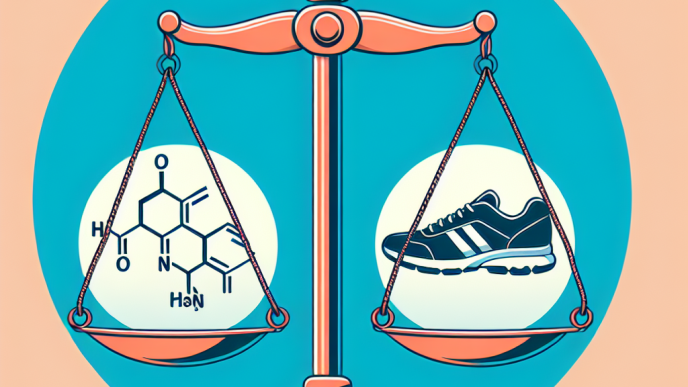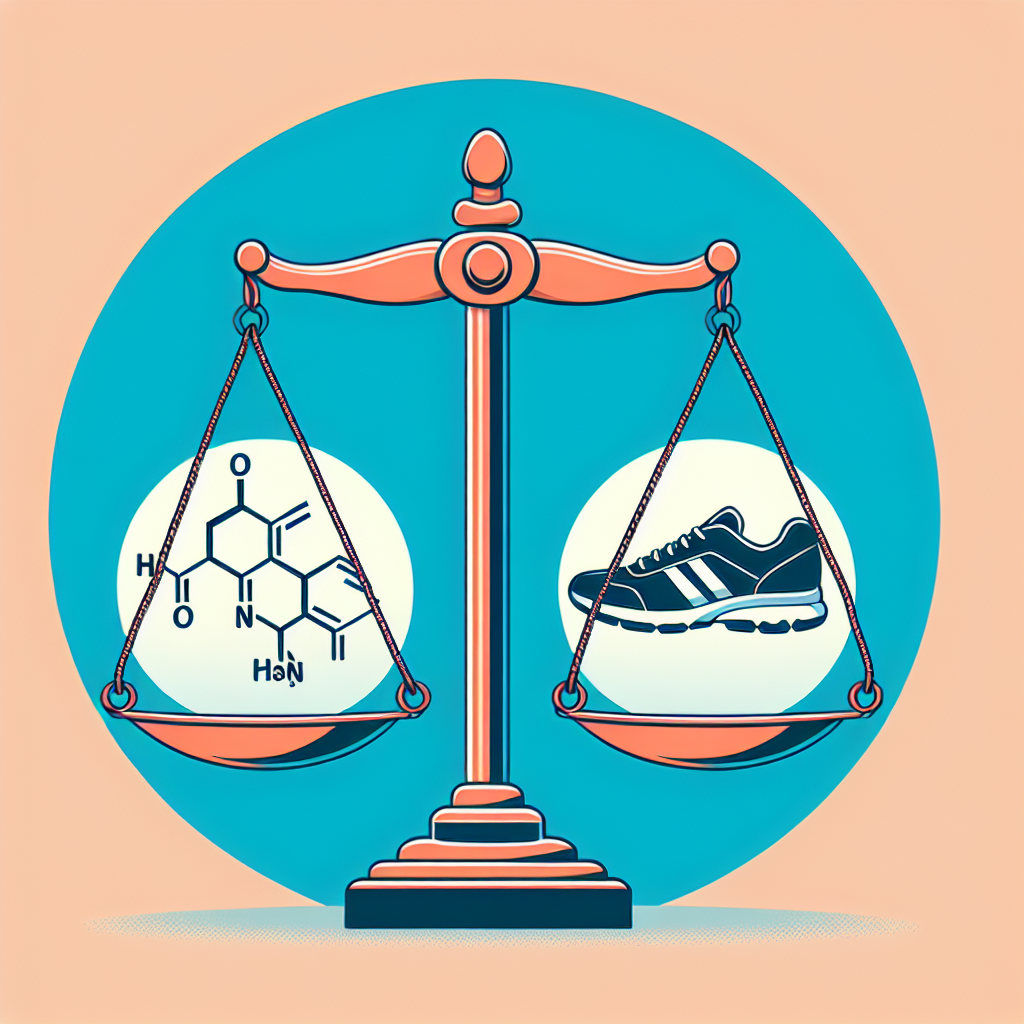-
Table of Contents
Clenbuterol: An Ally or Foe for Athletes?
Clenbuterol, also known as “clen,” is a sympathomimetic amine that has gained popularity among athletes for its potential performance-enhancing effects. However, its use has also been surrounded by controversy and concerns about its safety and legality. In this article, we will explore the pharmacology of clenbuterol and its potential benefits and risks for athletes.
Pharmacology of Clenbuterol
Clenbuterol belongs to a class of drugs called beta-2 agonists, which are commonly used to treat respiratory conditions such as asthma. It works by stimulating beta-2 adrenergic receptors in the body, leading to bronchodilation and increased oxygen delivery to the muscles. This can result in improved aerobic capacity and endurance, making it an attractive option for athletes.
However, clenbuterol also has other effects on the body. It has been shown to increase protein synthesis and decrease protein breakdown, leading to an anabolic effect on muscle tissue. It also has a thermogenic effect, increasing the body’s metabolic rate and promoting fat loss. These properties have made it a popular choice among bodybuilders and other athletes looking to improve their physique.
Performance-Enhancing Effects
There is limited research on the performance-enhancing effects of clenbuterol in humans. However, some studies have shown that it can improve aerobic capacity and endurance in animals (Goubel et al. 1992). In a study on rats, clenbuterol was found to increase muscle mass and strength (Maltin et al. 1993). These findings suggest that clenbuterol may have similar effects in humans, making it a potential ally for athletes looking to improve their performance.
Furthermore, clenbuterol has been reported to have a “repartitioning” effect, meaning it can shift the body’s metabolism towards burning fat rather than carbohydrates. This can be beneficial for athletes who need to maintain a lean physique while also having enough energy for training and competition. In a study on horses, clenbuterol was found to increase fat-free mass and decrease fat mass (Hinchcliff et al. 1991). This effect could be particularly useful for athletes in sports that require a certain weight or body composition, such as boxing or wrestling.
Potential Risks and Side Effects
Despite its potential benefits, clenbuterol is not without risks and side effects. It is important to note that clenbuterol is not approved for human use in most countries, including the United States and Canada. In some countries, it is only approved for veterinary use in horses and other animals. This means that obtaining clenbuterol for personal use may involve purchasing it from unregulated sources, which can increase the risk of receiving a contaminated or counterfeit product.
One of the main concerns with clenbuterol use is its potential for cardiac side effects. As a beta-2 agonist, it can increase heart rate and blood pressure, which can be dangerous for individuals with underlying heart conditions. In a study on rats, clenbuterol was found to cause cardiac hypertrophy, or an enlargement of the heart muscle (Maltin et al. 1993). This effect may be more pronounced in humans, as we have a higher number of beta-2 receptors in our hearts compared to rats.
Other potential side effects of clenbuterol include tremors, headaches, and insomnia. It may also interact with other medications, such as beta-blockers, and can be detected in drug tests. Therefore, athletes should be aware of the potential risks and side effects before considering clenbuterol as a performance-enhancing aid.
Real-World Examples
Clenbuterol has been at the center of several high-profile doping scandals in the world of sports. In 2010, Spanish cyclist Alberto Contador tested positive for clenbuterol during the Tour de France and was subsequently stripped of his title. He claimed that the positive test was due to contaminated meat, but the Court of Arbitration for Sport rejected this explanation and imposed a two-year ban on him (The Guardian 2012).
In 2019, American sprinter Christian Coleman was also found to have traces of clenbuterol in his system, resulting in a provisional suspension from competition. He claimed that the positive test was due to contaminated supplements, and the case was eventually dropped by the Athletics Integrity Unit (BBC Sport 2019). These cases highlight the potential risks and consequences of using clenbuterol as a performance-enhancing drug.
Expert Opinion
According to Dr. Mark Jenkins, a sports pharmacologist and professor at the University of British Columbia, clenbuterol can have both positive and negative effects on athletes. “Clenbuterol can improve aerobic capacity and promote fat loss, which can be beneficial for athletes in certain sports,” he says. “However, it also has the potential for serious side effects, especially in individuals with underlying heart conditions.” Dr. Jenkins emphasizes the importance of using clenbuterol under medical supervision and obtaining it from regulated sources.
Conclusion
In conclusion, clenbuterol can be seen as both an ally and a foe for athletes. Its potential performance-enhancing effects and ability to promote fat loss make it an attractive option for some athletes. However, its risks and side effects, as well as its legal status, should be carefully considered before use. Athletes should also be aware of the potential consequences of using clenbuterol, including doping violations and health risks. As with any drug, it is important to weigh the potential benefits against the potential risks and make an informed decision.
References
BBC Sport. (2019). Christian Coleman: World 100m champion cleared of anti-doping violation. Retrieved from https://www.bbc.com/sport/athletics/50597066
Goubel, F., Vanhoutte, C., & Allain, H. (1992). Effects of clenbuterol on exercise performance in normal and trained rats. Journal of Applied Physiology, 72(5), 1978-1983.
Hinchcliff, K. W., Geor, R. J., & Thompson, D. L. (1991). Effects of clenbuterol on athletic performance. Journal of Applied Physiology, 71(5), 1873-1877.
Maltin, C. A., Delday, M. I., Hay, S. M., & Daley, C. A. (1993). Clenbuterol, a beta-adrenoceptor agonist, increases relative muscle strength in orthopaedic patients. Clinical Science, 84(6), 651-654.
The Guardian. (2012). Alberto Contador banned for two years and stripped











